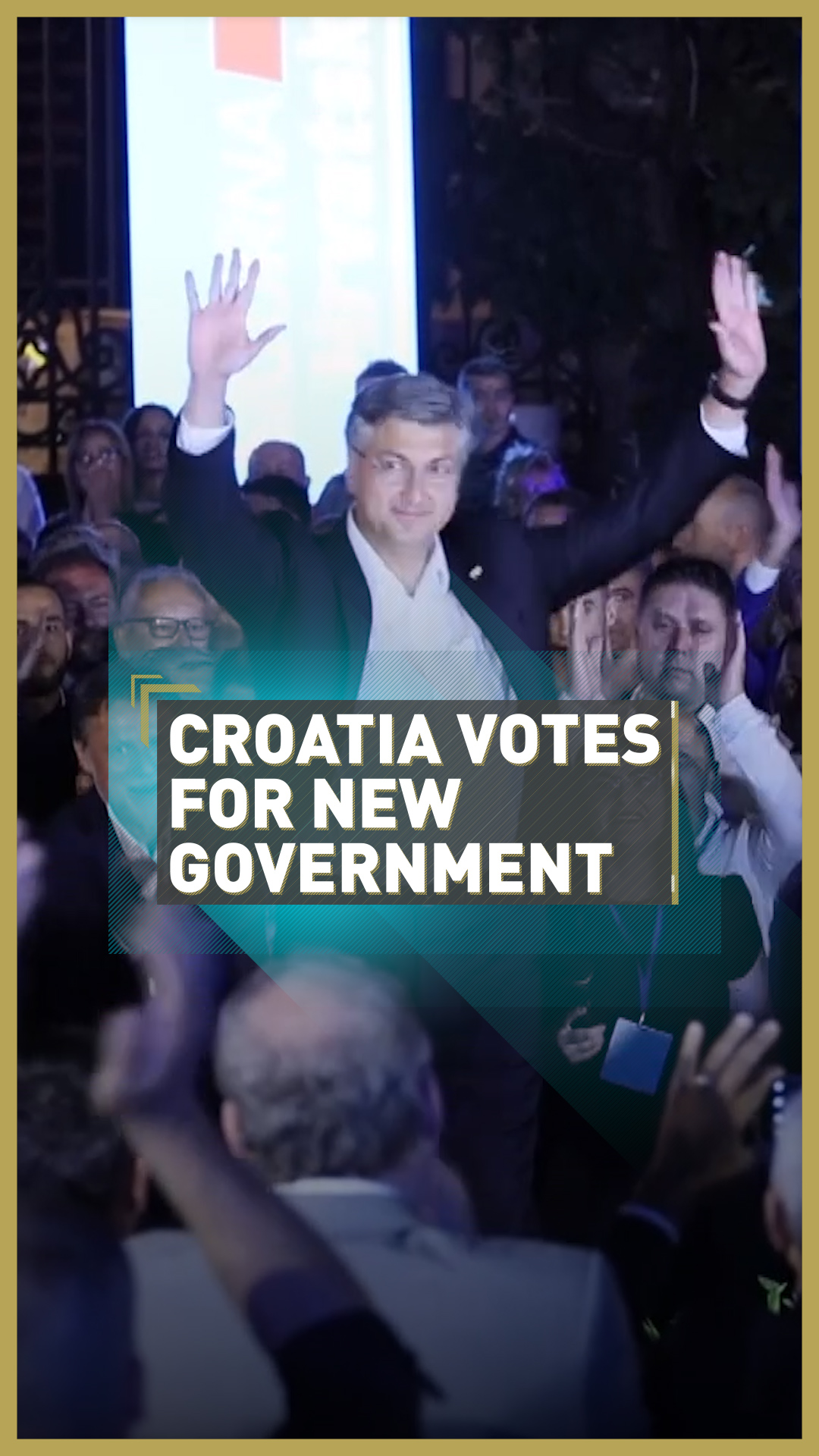02:11

The Croatian Democratic Union (HDZ) maintained its grip on power after winning Sunday's election by a bigger-than-expected margin.
The conservative party won 68 of the 151 parliamentary seats after political commentators had predicted a tight race between it and the Social Democratic Party (SDP), which won just 41 seats.
Despite cruising to victory, HDZ's success wasn't enough to seal a majority and it must now form a coalition government with another party – which is likely to be one of the country's minority right-wing groups.
Still, spirits were high as a handful of HDZ party members celebrated at a post-election party, where numbers were limited as a result of COVID-19 social distancing measures, and leader and prime minister, Andrej Plenkovic, revealed his delight.

HDZ leader Andrej Plenkovic celebrates after his party held on to power following a landslide victory on Sunday./AP
HDZ leader Andrej Plenkovic celebrates after his party held on to power following a landslide victory on Sunday./AP
He said: "This victory today gives us the right to rejoice a bit and to be relaxed a bit, and tomorrow morning at 9 a.m. we will start again, together and with all our hearts, to work for Croatia."
Now the question on everyone's lips is which party will form a coalition government with HDZ? One of the leading candidates is Domovinski pokret or Homeland Movement, the leader of which, Herman Vukušić, says he is open to working alongside HDZ.
He told CGTN Europe: "I think the coalition with HDZ is a primary possibility in the new Croatian political scene. This is the only way to form a stable government and not to provoke another election, which is completely not in accordance with the wishes of the Croatian people."
There is no money for the changes needed. It is all the same for us, regardless of who's in power
- Voter Zdenko Petrovic reveals his disillusionment with Croatia's political future
But Croatian citizens remain skeptical. Turnout was just 46 percent, the lowest for a Croatian parliamentary election. That was partly due to the COVID-19 pandemic but also a feeling of disillusion among the population.
At a polling station in Zagreb, voter Zdenko Petrovic, said: "There are not many changes. Don't misunderstand me, but what can be changed and by whom? There is no money for the changes needed. It is all the same for us, regardless of who's in power."
The election is over in Croatia and now the real work must begin to boost an economy that has been hit hard by COVID-19 and morale, which is flagging as the number of new cases and deaths continue to increase after lockdown measures were eased early.
Read more: Croatians voting amid virus concerns